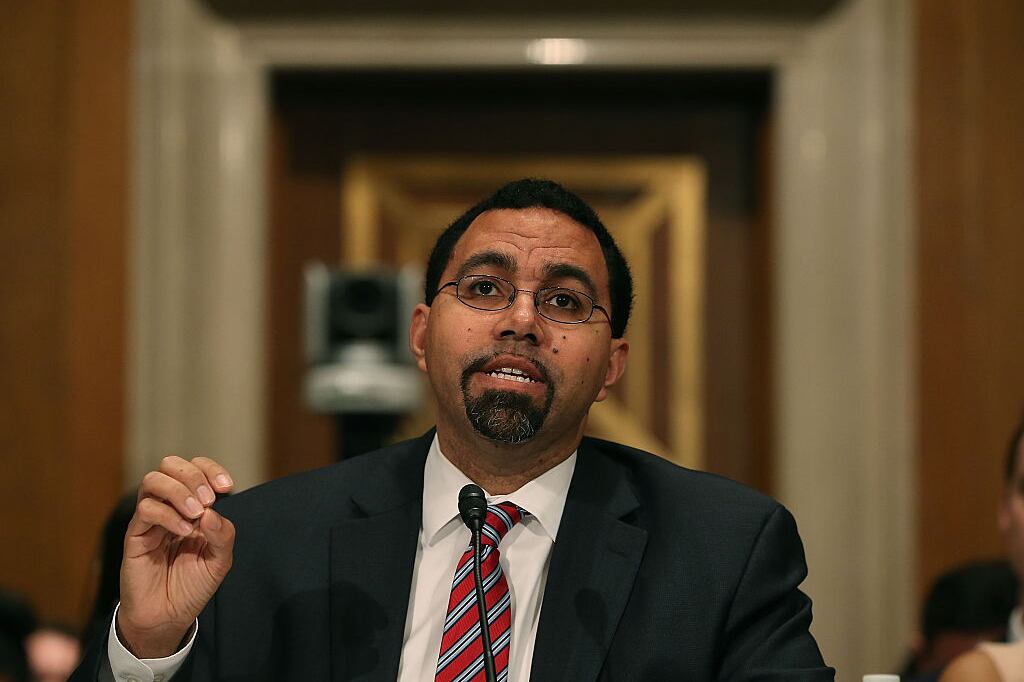America’s schools need more help from the federal government, soon, several education leaders and lawmakers said Wednesday.
The coronavirus pandemic and the current economic downturn mean school district leaders are facing budget cuts and a complicated, expensive upcoming school year, with new health mandates and new academic challenges. At a hearing of the U.S. Senate’s health and education committee, some said there was more the federal government could do to help — namely, passing a stimulus package that includes far more for education than the CARES Act passed in March.
“Let me express alarm at the prospect of leaving for a two-week recess in July without appropriating additional funding for schools,” said Connecticut Sen. Chris Murphy, a Democrat. “The CARES Act put in about as much money for the airline industry as it did for the entire American public school system.”
“We need to get additional funding to states and/or to school districts before the July recess because the planning that’s going to need to be done in order to make sure schools can reopen safely is going to be done this summer,” Murphy said.
Senate leader Mitch McConnell said he’s considering such a stimulus package, but indicated in late May that the process would start in “about a month,” NPR reported. House Democrats already passed their version.
“Without Congressional action, there will be no conceivable way to avoid layoffs and hiring freezes disproportionately impacting educators and staff at high-poverty schools,” said John King, the former U.S. Secretary of Education and now head of the Education Trust, a civil rights and education group.
Delays make those calculations even tougher for school districts, he said. “Even as people are doing their scenario planning, they are hampered in that work because of fear of cuts,” King said.
Estimates of what schools will need vary. The Education Trust, along with 70 other education groups, has asked Congress to allocate $500 billion for state and local governments, with $175 billion set aside for K-12 education.
Denver schools chief Susana Cordova said the district, which is now facing a $61 million budget gap and is considering major cuts for next year’s budget, could use additional help.
“Absolutely, we do not have the financial capacity to do everything we would like to be able to do. In fact, we are looking at pretty significant cuts,” she said at the hearing.
In Tennessee, things look better in the short term. Gov. Bill Lee said he’s committed to maintaining the current level of state funding for school districts, despite other imminent state cuts.
“We are very grateful for that, and we will continue to look for investments as our economy bounces back,” State Commissioner Penny Schwinn said.
Several Senators and education leaders also referenced the recent killing of George Floyd and other Black Americans, with some pausing to acknowledge the protesters demanding change around the country.
There is evidence that the last few months have been tougher on students of color, with surveys showing they have had less access to devices, parents less able to work from home, and more economic stressors. Black students and families in particular will need more academic, economic, and emotional support in the year ahead, King said.
“Students will need additional support as they grapple with the continued reality of racism in America and the legacy of over 400 years of anti-Blackness,” King said. “The murders of George Floyd, Breonna Taylor, and Ahmaud Arbery have once again sent the message to Black students that their lives are devalued.”






